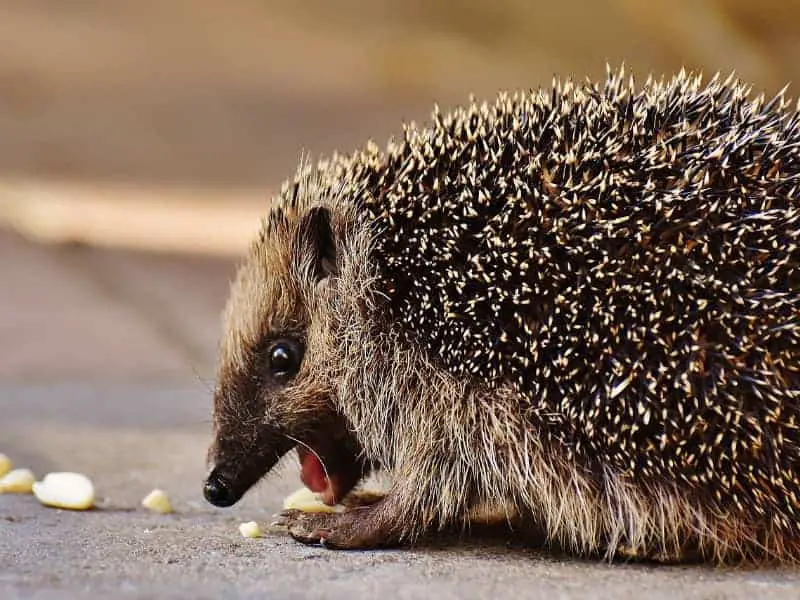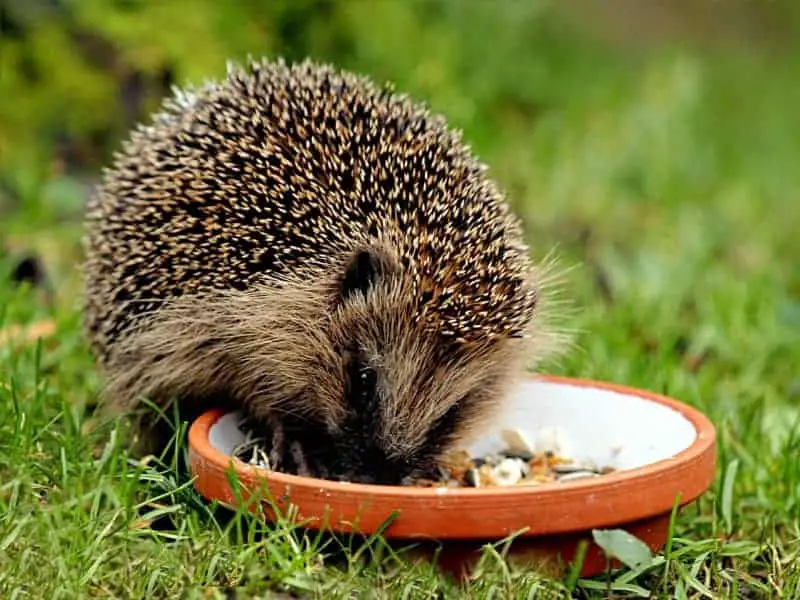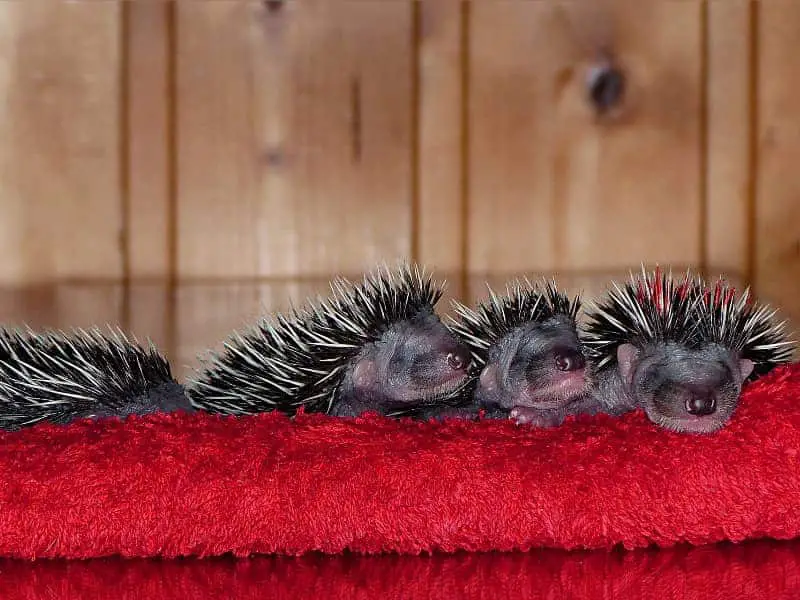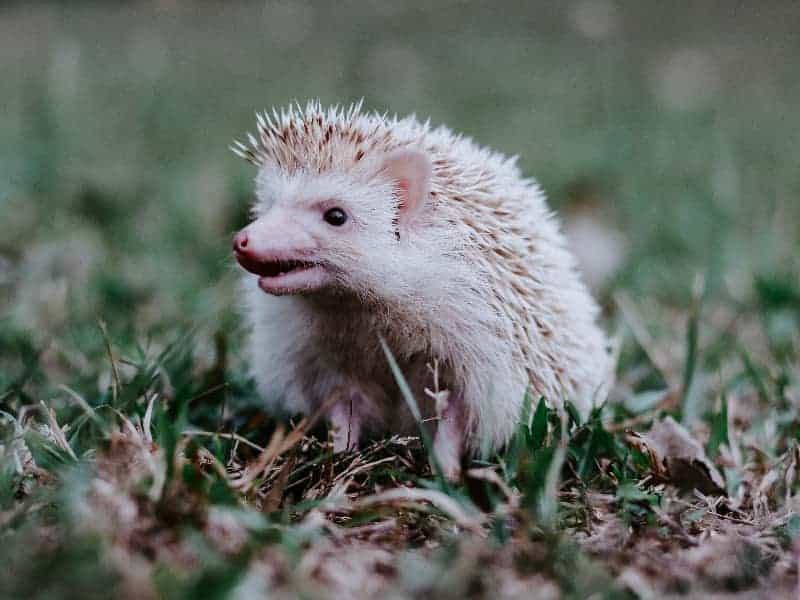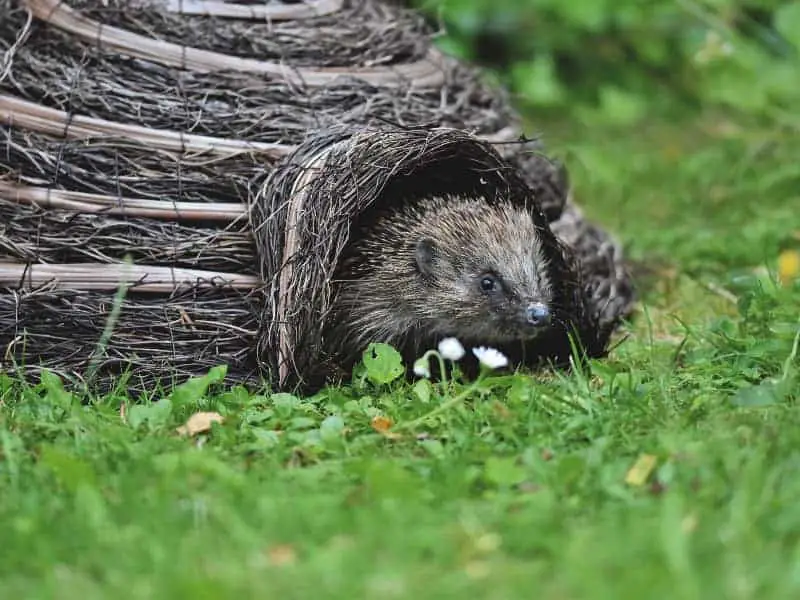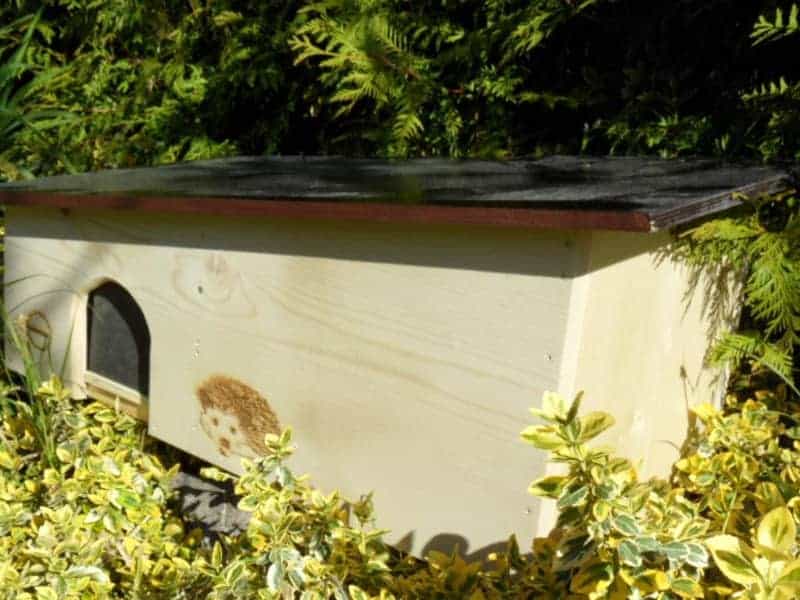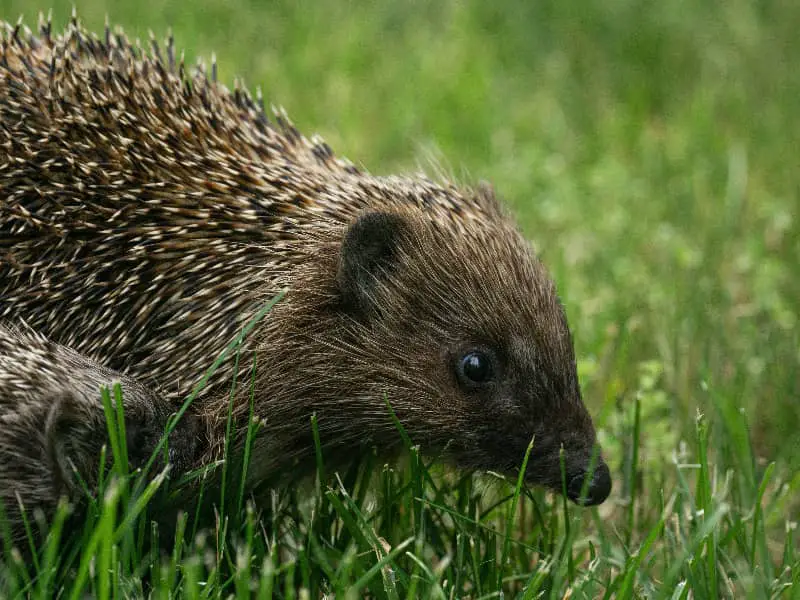
Hedgehogs out and about during the day in summer
It is a topic that concerns many nature lovers and animal enthusiasts: Why are hedgehogs out and about during the day in summer? This question raises many more, for example in relation to the behavior, habitat and diet of these little prickly fellows. In this blog post, we take a closer look at the various aspects that determine a hedgehog's daytime activities in summer.
- Hedgehogs out and about during the day in summer
- Why the topic: Hedgehogs out and about during the day in summer?
- Hedgehog habitat in summer
- Why are hedgehogs active during the day in summer?
- How you can support hedgehogs
- Hedgehogs found during the day in summer - health aspects
- Conclusion: Hedgehogs out and about during the day in summer
- Frequently asked questions (FAQ) about hedgehogs out and about during the day in summer
- Why are hedgehogs active during the day in summer?
- Is it normal for hedgehogs to be out and about during the day in summer?
- How can I help a hedgehog in summer?
- What should I do if I find a sick or injured hedgehog?
- Are hedgehogs at risk in summer?
- Can hedgehogs transmit diseases in summer?
- What food do hedgehogs look for in summer?
- Are hedgehogs more social in summer than in other seasons?
Why the topic: Hedgehogs out and about during the day in summer?
The hedgehog is a fascinating animal that is native to many gardens and forests. Especially in summer, people often observe hedgehogs being active during the day - a behavior that raises many questions. It is important to understand this phenomenon in order to improve coexistence with these animals and protect them effectively.
There are also numerous misconceptions and half-truths surrounding hedgehogs. A deeper understanding can help to better protect these small mammals and improve their quality of life.
What will be covered in the blog post?
This blog post will provide a comprehensive overview of the various factors that influence hedgehog activity in summer. We will cover habitat, diet, threats and challenges, ways to support hedgehogs and other relevant topics. Our aim is to provide you with a holistic view of the hedgehog's life in summer, with a particular focus on their daytime activity.
Hedgehog habitat in summer
A hedgehog's habitat is diverse and can range from gardens to parks and forests. In summer, there are special conditions that influence the hedgehog's behavior and activity patterns.
Where do hedgehogs spend most of their time?
Hedgehogs are often found in areas with rich flora and fauna in summer. They prefer places with dense undergrowth where they can retreat during the day. The availability of food plays a decisive role here. Hedgehogs are omnivores and forage for insects, fruit and sometimes even small vertebrates. Their habitat should therefore offer a balanced mix of open areas for foraging and hidden places for shelter.
What conditions do they prefer?
In summer, hedgehogs prefer cooler, shady places, especially during the hottest parts of the day. The reason for this is their ability to adapt to the climate. Too much heat is stressful for them and can cause health problems. They also seek refreshment near water sources, which is particularly important in dry summers.
Why are hedgehogs active during the day in summer?
There are several reasons why hedgehogs are active during the day in summer. This behavior can be influenced by a number of factors, including pregnancy, human disturbance and food availability.
Pregnancy
One of the main reasons why female hedgehogs can be active during the day in summer is pregnancy. During this time, they have an increased energy requirement to support the development of the fetuses. This means that they need to forage for more food, which can cause them to be active during the day. In addition, pregnant hedgehogs need suitable nesting sites, and the search for these can also draw them out of their usual hiding places.
Malfunction
Hedgehogs are adaptable animals, but they are also sensitive to disturbances in their habitat. Gardening, road traffic or even pets can disrupt the small mammals' usual daily rhythm. If their usual resting place is disturbed, they have no choice but to look for a new hiding place, and this can happen during the day.
Feed supply
The food supply also plays an important role in the daily activity of hedgehogs in summer. The variety and availability of food such as insects, fruit and small animals are decisive factors. Especially when food is scarce, hedgehogs may extend their usual feeding times and forage during the day.
Illness
Unfortunately, it happens again and again that hedgehogs become ill and can be seen during the day for these reasons. You can often recognize these hedgehogs by the fact that they are emaciated and sometimes wander around aimlessly. You can help these animals by offering them food or taking them to a vet.
How you can support hedgehogs
Hedgehogs are fascinating and useful animals that make an important contribution to the ecosystem. But especially in summer, when they can also be active during the day, they need our support. There are various ways to help them feel more comfortable at this time of year.
Offer drinking water
One of the simplest and most effective ways to help hedgehogs in summer is to offer them drinking water. Water is a vital resource for these animals, especially in the hot months when natural water sources can dry up. Placing a shallow bowl of fresh water in the garden can be a real lifesaver for hedgehogs. But beware: milk is not suitable for hedgehogs as they cannot digest lactose well.
Create shelters
Hedgehogs need safe places where they can retreat during the day. A simple pile of leaves and branches can serve as a shelter. If you want to do more, you can also put up special hedgehog houses in the garden. These not only offer protection from predators and the weather, but can also serve as nesting sites for pregnant females. When designing the shelters, care should be taken to ensure that they are well ventilated and provide an easy entrance and exit for the hedgehogs.
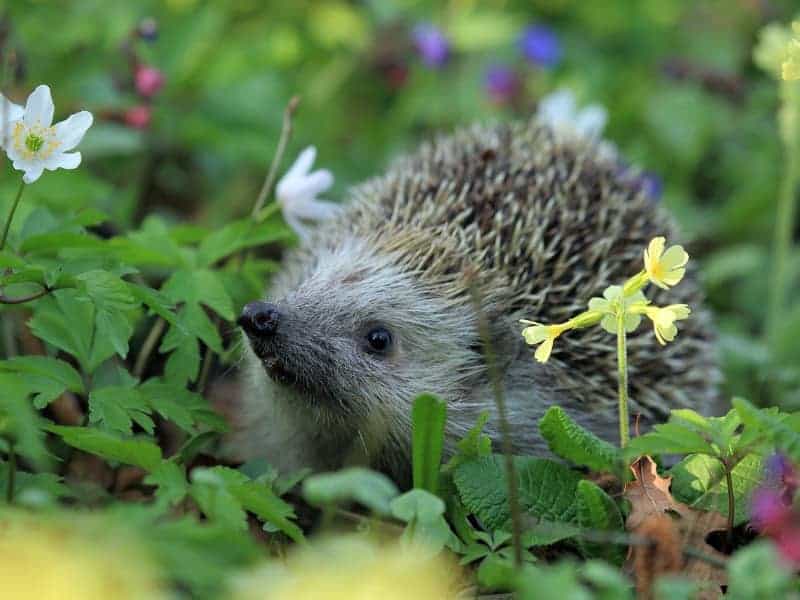
Hedgehogs found during the day in summer - health aspects
Hedgehog health is another important consideration, especially if they are active during the day in summer. A sick hedgehog often exhibits behaviors that are not typical of healthy hedgehogs, and it is important to know how to recognize such signs and what to do if you come across a sick hedgehog.
Recognizing sick hedgehogs
A healthy hedgehog is normally quite active and has a steady gait. However, illnesses or injuries can cause the hedgehog to behave abnormally. For example, it may appear apathetic, move sluggishly or have obvious injuries. Other signs of illness could be that the hedgehog is out and about during the day and is not afraid of people or animals. A conspicuously sparse coat of spines can also indicate health problems.
What should you do if you find a sick hedgehog?
If you find a hedgehog showing signs of illness or injury, it is advisable to seek professional help. A first step could be to carefully place the hedgehog in a box with holes for ventilation and a warm blanket. After that, you should contact a local animal welfare organization or a vet who has experience with wild animals. It is important not to treat the hedgehog yourself as this could further endanger its health.
Conclusion: Hedgehogs out and about during the day in summer
The activity of hedgehogs during the day in summer is an interesting phenomenon that is influenced by various factors. Whether in search of food, due to pregnancy or habitat disturbance, there are many reasons that can cause a hedgehog to change its usual nocturnal rhythm.
However, it is important to support these animals in their natural environment. Simple measures such as providing drinking water or creating shelters can make a big difference. If you find a sick or injured hedgehog, it is crucial to seek professional help rather than intervene yourself.
The well-being of hedgehogs is not only their own responsibility, but is also a sign of the health of our ecosystem. A conscious and respectful approach to our environment and its inhabitants is beneficial to us all.
Frequently asked questions (FAQ) about hedgehogs out and about during the day in summer
Why are hedgehogs active during the day in summer?
Hedgehogs can be active during the day for various reasons. These include pregnancy, disturbances in the habitat or a change in the food supply.
Is it normal for hedgehogs to be out and about during the day in summer?
It is rather unusual as hedgehogs are usually nocturnal animals. If a hedgehog is active during the day, this may indicate special conditions or possibly health problems.
How can I help a hedgehog in summer?
Simple ways to help a hedgehog in summer are to provide fresh drinking water and create shelters in the garden.
What should I do if I find a sick or injured hedgehog?
If you find a sick or injured hedgehog, it is advisable to seek professional help. Carefully place the hedgehog in a box and contact a vet or animal welfare organization.
Are hedgehogs at risk in summer?
Hedgehogs can be endangered by various factors in summer, including heat, lack of water and human activities such as road traffic or gardening.
Can hedgehogs transmit diseases in summer?
The probability is low, but like all wild animals, hedgehogs can potentially carry pathogens. It is therefore advisable to avoid direct contact and to wear gloves when caring for hedgehogs.
What food do hedgehogs look for in summer?
Hedgehogs are omnivores that can eat a variety of foods. In summer, they mainly forage for insects, worms, snails, fruit and small animals.
Are hedgehogs more social in summer than in other seasons?
Hedgehogs are generally solitary animals, but during the mating season in summer they can be more social in order to find a partner.
Author

-
Garden animal - A life with nature
Welcome to my animal blog! My name is Dirk and I am happy to take you on my journey through the fascinating world of animals and gardening.
Born 54 years ago, I have had an insatiable curiosity for the animal world around me since childhood. Although I have moved professionally in other industries, my true passion has always been animals and nature. It is remarkable how a small garden has become such an important part of my life.
Many of my fondest memories are associated with the animals that share our home. Whether it's the curious squirrels that scurry across the trees in the morning, the colorful variety of birds that visit our feeders, or the busy bees and butterflies that pollinate our flowers, every moment with them is invaluable to me.
This blog is my contribution to share my experiences, discoveries and insights with like-minded people. Here I will share stories of unforgettable encounters with animals, give tips on gardening and creating wildlife-friendly habitats, and take you on my journeys through nature.
Thank you so much for being here!
Cordial,
Dirk aka garden animal
Last posts
- 27. February 2024PetsVeganes Hundefutter – Grün und Gesund?
- 18. January 2024ChickensOregano für Hühner
- November 27, 2023HamsterDiurnal hamsters
- November 24, 2023HamsterHamster hammock

